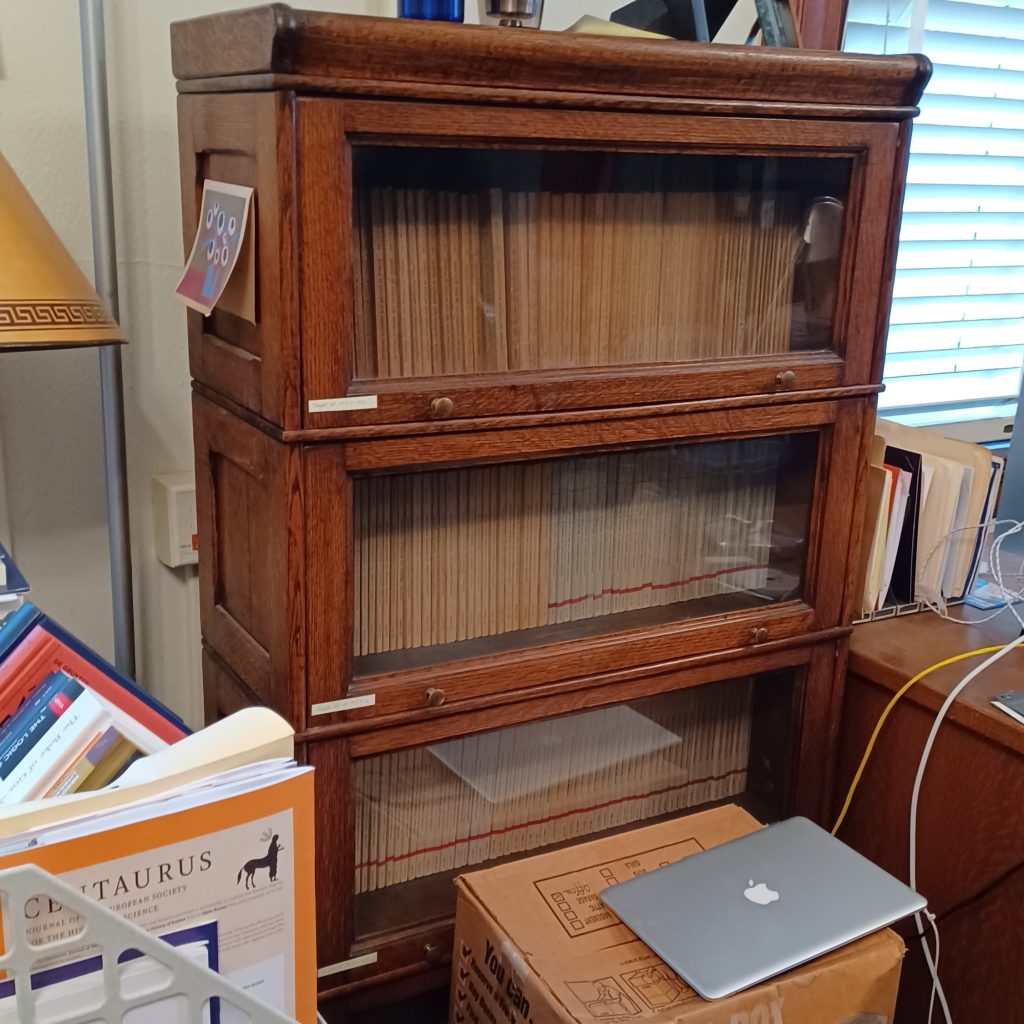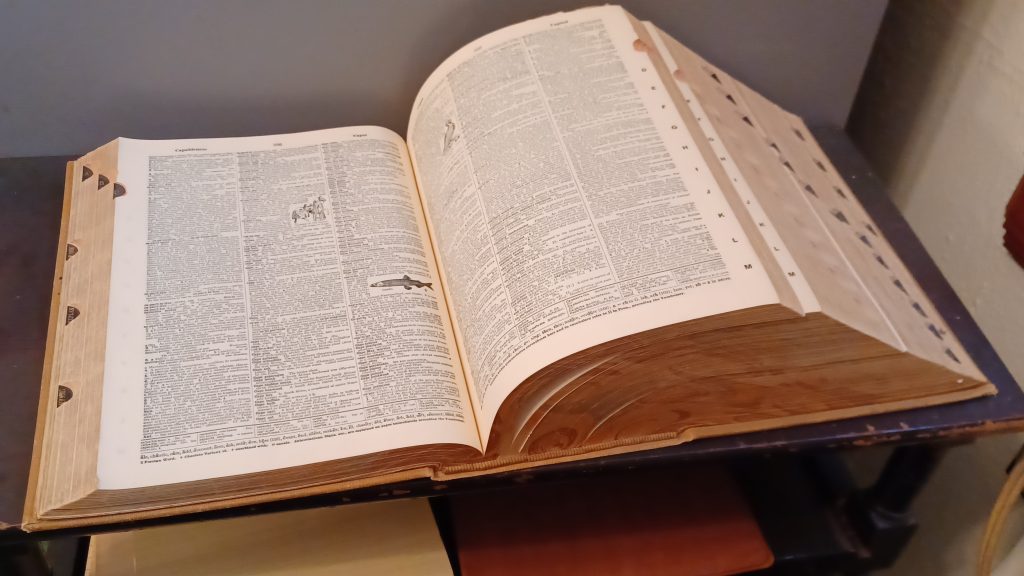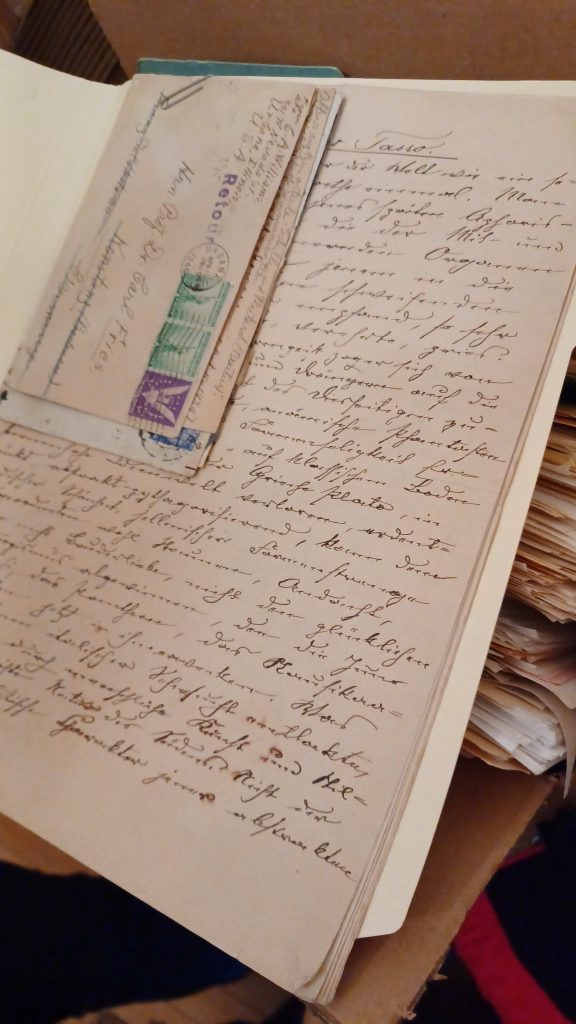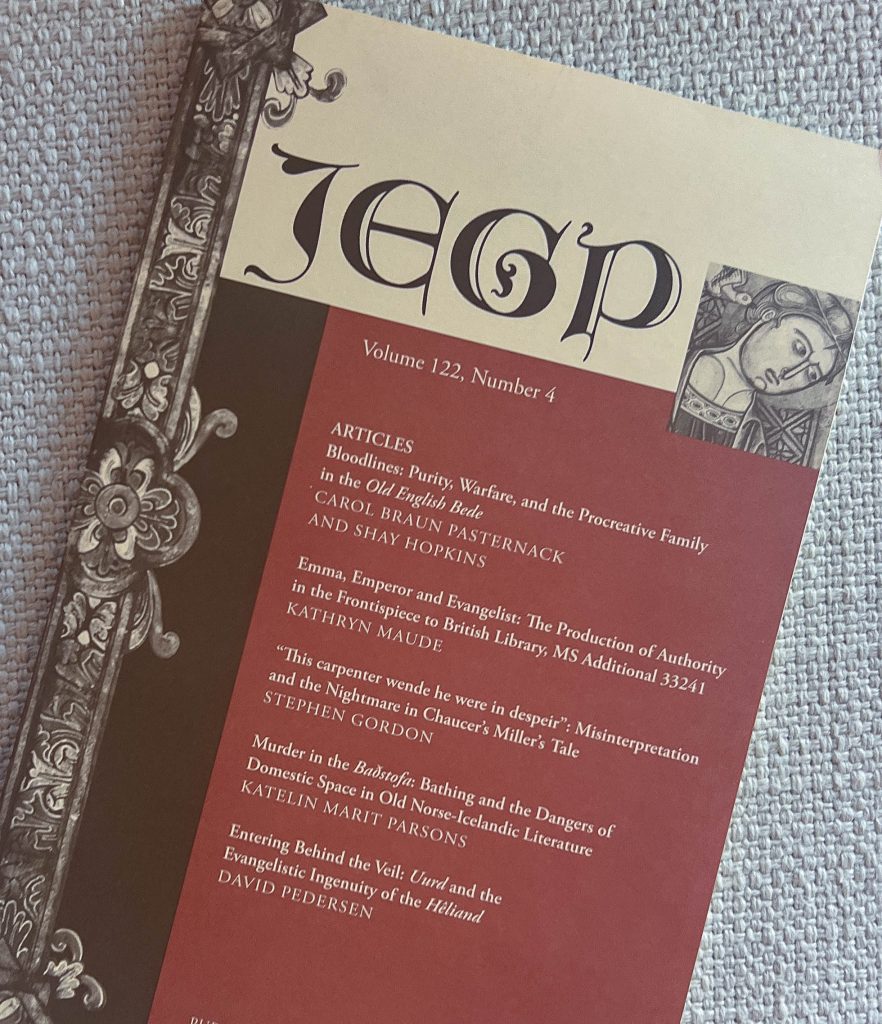Interested in a sneak peek into the physical history of a journal? Read on to experience, with Production Editor Kate Kemball, what it is like to uncover years of history and scholarship of the Journal of English and Germanic Philology.
This situation is best described through movie cartoon imagery of a room full of furniture being spun around and then disappearing in a whirlwind up into the sky. The room in question is the editorial office of a journal devoted to the understanding of ancient documents and records and goes by the descriptive, if somewhat cumbersome, name of the Journal of English and Germanic Philology. (Hence the frequently used abbreviation JEGP!) The office is in the University of Illinois English department and is a film-set cliché of glass-fronted bookshelves, metal filing cabinets, wooden card catalogs, a typewriter, a huge dictionary from 1934 that looks like a family bible, and a corduroy jacket hanging on a coat rack.
The journal’s new “office” is a node in a software package in the cloud.
Journal of English and Germanic Philology has been published continuously for 125 years, and still today discusses topics including Beowulf, meditations on Old Norse-Icelandic words, and reviews of books on medieval studies. The only thing thicker than the dust of the office is the irony that a journal examining the meaning of records and literary texts is about to ditch decades of its own records and old documents. The full text of the journal’s archive is digitized and available to scholars via a library search. The university library even has a full set of physical volumes from 1897, the early volumes bound in black covers and labelled in gold ink—in this digital age no one needs duplicate copies.
Amongst all the history buried in the room, one example of a manila folder picked at random contained 1939 correspondence in German with Prof. Dr. Carl Fries. His submission was about Plato and Goethe and was hand-written in flowing black cursive for 13 numbered pages, now brown from age. There is a note from the editor that correspondence concerning another article from this same author, about Schiller and Plutarch, had ceased due to the [second world] war. Neither article was published—submitting to a journal has never been without the possibility of disappointment.
Also preserved in this time capsule were manila folders containing sheets of stamps, and notices of postages costs. Amazingly, the book rate for parcels in 1964 was 12 cents for the first pound, and six cents for every subsequent pound.
It’s not a tragic end, though. The research and scholarship press on—that has not grown dusty. In the next issue authors mull courtly romance in Iceland, the early medieval conception of reciprocal gift-giving, and book reviewers take on topics from Old Norse literature to medieval English music and poetry.
Find Out More
The Journal of English and Germanic Philology (JEGP) focuses on Northern European literatures of the Middle Ages, covering Medieval English, Germanic, and Celtic Studies. The word “medieval” potentially encompasses the earliest Germanic and Celtic texts; the vernacular and Latin literatures of the Middle Ages in Britain, Ireland, Germany, and Scandinavia; and any continuities and transitions linking the literatures of the medieval and post-medieval eras, including modern “medievalisms” and the history of medieval literary scholarship.
- Individual subscriptions can be made through the University of Illinois Press website.
- To recommend this title to your library, fill out this online Library Request Form. Many institutional libraries also have an online form you can fill out on their websites.
- Ready to see your work featured in Journal of English and Germanic Philology? Submit original scholarly work here.




